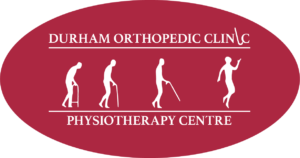Whiplash injuries, commonly associated with motor vehicle accidents or sports collisions, can have a significant impact on neck and spine health. The sudden and forceful back-and-forth movement of the neck can lead to strains, sprains, and other soft tissue injuries. Fortunately, physiotherapy offers effective strategies for recovery and rehabilitation.
Understanding Whiplash
Whiplash occurs when the neck is forcefully jerked forward and backward causing injury to the muscles, ligaments, tendons and other soft tissues surrounding the cervical spine. Common symptoms include neck pain, stiffness, headaches, dizziness and in severe cases, numbness or tingling in the arms.
Physiotherapy Strategies for Whiplash Recovery
Pain Management Techniques
Physiotherapists employ various modalities such as acupuncture, ultrasound and electrical stimulation to alleviate pain and reduce inflammation in the affected area.They will also educate on pain management strategies that clients can use to manage their pain at home.
Range of Motion Exercises
Gentle neck exercises and stretches prescribed by physiotherapists help improve flexibility and restore normal range of motion in the neck. These exercises gradually increase in intensity as the injury heals and the range of motion in the neck improves.
Manual Therapy
Hands-on techniques like soft tissue massage, joint mobilization, and manipulation are used to reduce muscle tension, improve joint mobility and promote healing of injured tissues. This is a very important component in rehabilitating whiplash injuries.
Postural Correction
Physiotherapists assess and address any postural imbalances that may exacerbate whiplash symptoms. They provide guidance on maintaining proper posture during daily activities to prevent further strain on the neck and spine.
Strengthening Exercises
Specific strengthening exercises target the muscles of the neck, shoulders and upper back to improve stability and support for the cervical spine. Gradually increasing strength helps protect against future flare ups and injuries.
Education and Ergonomics
Patients receive education on proper ergonomics and body mechanics to reduce strain on the neck and spine during activities of daily living and work-related tasks.
Recovery and Rehabilitation
Recovery from whiplash injuries varies depending on the severity of the injury and individual factors. Physiotherapy plays a crucial role in facilitating recovery by addressing pain, restoring function and preventing long-term complications.
Conclusion
Whiplash injuries can be debilitating, but with the right physiotherapy interventions, recovery is possible. By following a tailored treatment plan designed by skilled physiotherapists, individuals can regain mobility, alleviate pain and return to their daily activities with confidence. If you or someone you know has experienced a whiplash injury, contact the professionals at Durham Orthopedic and Sports Injury Clinic to start the journey toward a full recovery. Remember, the road to recovery may be challenging, but with physiotherapy support, it’s a journey worth taking.


